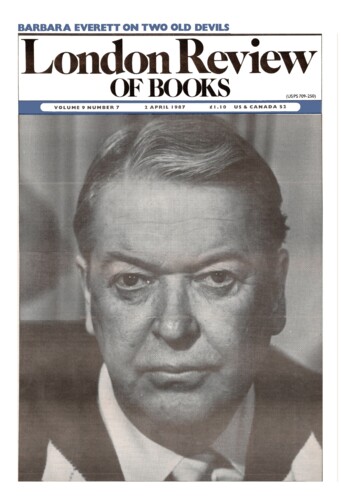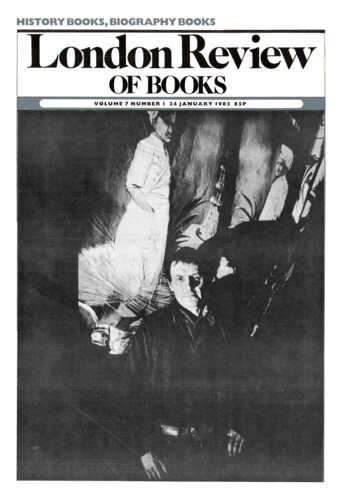Philistines
Barbara Everett, 2 April 1987
Literary friendships (Sidney and Greville, Pope and Swift, Wordsworth and Coleridge, Eliot and Pound) have interest for the critic as well as the biographer. They show how unlike temperaments of near-equivalent talent may be drawn together by unanimity of literary principle. This unanimity should therefore be worth looking into, especially in the case of work like Philip Larkin’s, always more reserved and elusive than it seems. I want to consider his writing in juxtaposition with that of Kingsley Amis, close friend of the poet’s for over forty years; and to begin with Amis’s recent Booker Prize-winning novel. The element of apparent circuitousness in this approach to Larkin is perhaps excused by the nature of friendship itself: both persons matter, as Montaigne implied in his well-known explanation of friendship, ‘Because it was he, because it was I.’ Amis’s remarkable individuality may be defined so as to clarify, however indirectly, Larkin’s great and always in some sense reticent achievement.




